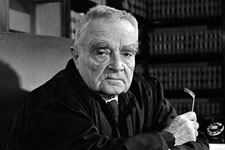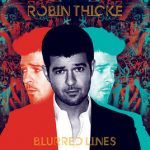Learned Hand: You’re Reading Him Wrong
 Possibly no judge had a greater influence on copyright law in the twentieth century than Learned Hand. Nichols v. Universal Pictures and Peter Pan Fabrics are foundational cases in most textbooks; Sheldon v. MGM and Fred Fisher v. Dillingham used to be. And although he did not write the opinion, Hand was on the panel that decided Arnstein v. Porter.
Possibly no judge had a greater influence on copyright law in the twentieth century than Learned Hand. Nichols v. Universal Pictures and Peter Pan Fabrics are foundational cases in most textbooks; Sheldon v. MGM and Fred Fisher v. Dillingham used to be. And although he did not write the opinion, Hand was on the panel that decided Arnstein v. Porter.
Part of the reason for Hand’s enduring popularity is that he was a brilliant writer, and his aphorisms about copyright law continue to appeal to a skeptical age. In Nichols, he famously declared with respect to the distinction between uncopyrightable idea and copyrightable expression, “Nobody has ever been able to fix that boundary, and nobody ever can.” In Shipman v. RKO Pictures: “The test is necessarily vague and nothing more definite can be said about it.” In Dellar v. Samuel Goldwyn, Inc., decided per curiam but attributed to Hand: “[T]he issue of fair use … is the most troublesome in the whole law of copyright.” In Peter Pan Fabrics v. Martin Weiner Corp.: “The test for infringement of a copyright is of necessity vague…. In the case of designs, which are addressed to the aesthetic sensibilities of an observer, the test is, if possible, even more intangible.”
To modern ears, these sound like (and are often quoted as) criticisms of copyright law. A vague, ineffable test is an unworkable test, one that offers no guidance to lower courts or juries and is therefore hardly better than no test at all. But to read Hand in this way to read him anachronistically.

